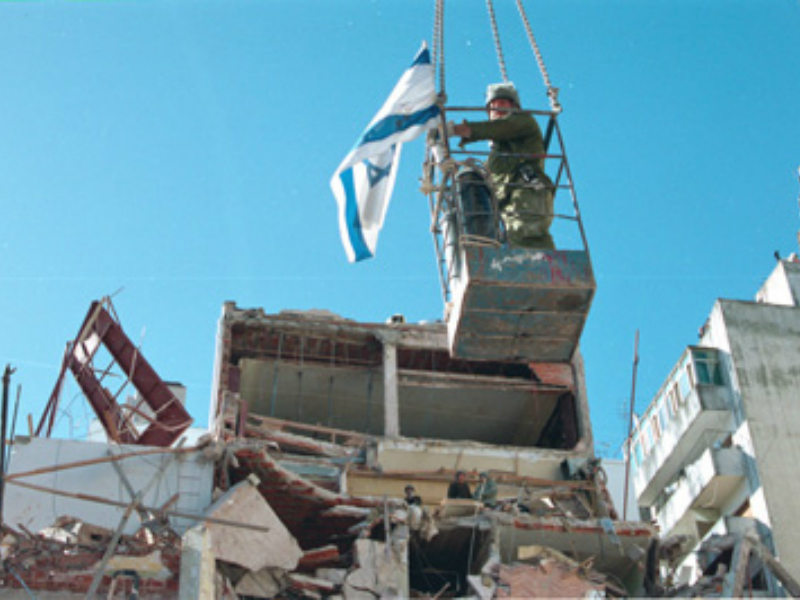Public Safety Canada releases an annual report on terrorist threats, which in recent years has highlighted ISIS and al-Qaida as posing the greatest risk to Canada, along with a general category of extremists who are inspired by violent Islamist ideology. But tucked away in these reports is a brief mention that Hezbollah also poses a clear risk to Canadian interests, with regard to its terrorist financing, recruitment and operations.
Indeed, both the RCMP and the Ministry of Public Safety view the organization, whose objectives are to destroy Israel and establish a revolutionary Shia Islamic state in Lebanon that is modelled after Iran, as one of the most technically capable terrorist groups in the world. Yet Hezbollah generally does not receive much attention here.
Hezbollah was designated as a terrorist entity in Canada in 2002, with both the Liberal government and Conservative opposition at the time rightly rejecting the notion that the military and political wings of the organization could be distinguished in a way that would rationalize only banning the former. Aside from this crucial step, what other policy measures could be put in place to contain the threat posed by Hezbollah?
First, given that Iran provides approximately $800 million a year to Hezbollah, in addition to weapons, it is important that Canada continues to label Iran as a state sponsor of terror and ensure that Canadian money does not help enrich the regime.
One particularly tragic example of Hezbollah operating under Iran’s guidance is the 1994 terrorist bombing of the AMIA Jewish community centre in Buenos Aires, in which 85 people were killed and many more wounded. Mohsen Rabbani is said to have handled the logistics for the attack. Shortly before the bombing, Rabbani became the cultural attaché to the Iranian Embassy in Buenos Aires. This diplomatic appointment and its attendant passport allowed him to carry out the operation.
This attack, and others like it, should heavily weigh against any consideration the Canadian government might give to allowing Iran to re-open its embassy in Ottawa.
An Iranian embassy establishes a foothold inside Canada, from which serious terrorist groups like Hezbollah are positioned to spy, recruit, fundraise and carry out attacks.
Second, Canada must recognize the threat that Hezbollah poses, especially in Latin America, where it, and Iran, are particularly active. Alberto Nisman, an Argentine prosecutor who was murdered in 2015 while investigating his government’s cover-up of Iran’s role in the AMIA bombing, had previously released a report warning countries such as Chile, Brazil, Uruguay and Paraguay of Iranian infiltration.
Canada should urge Latin American countries to list Hezbollah as a terrorist group and even contemplate utilizing the Justice for Victims of Corrupt Foreign Officials Act to impose sanctions. As my colleague Emanuele Ottolenghi has pointed out, “In Latin America, a major factor explaining Hezbollah’s success is its ability to buy the silence and complicity of local politicians, law enforcement, judges and prosecutors, airport security and other officials.” These foreign officials’ corrupt practices may render them worthy of sanctions under Canadian law.
Finally, Canada should recalibrate its foreign policy vis-à-vis Lebanon, whose sovereignty has been largely co-opted by this terrorist organization. Hezbollah is the key power broker in the Lebanese parliament and has influence inside the Lebanese Armed Forces. This explains why Iranian civilian airliners can fly weapons destined for Hezbollah straight into the Beirut airport. Canadian policy must include measures to isolate and defang those involved in perpetuating insecurity and slaughter throughout the region, through their support for Hezbollah.
READ: SAPERIA: SAUDI ARABIA COULD LEARN A THING OR TWO FROM CANADA
Hezbollah also runs a multi-billion dollar international network of illicit activities, such as drug trafficking and money laundering. There is nothing redeeming about this organization. It’s time for Canada to get tough on Hezbollah.
